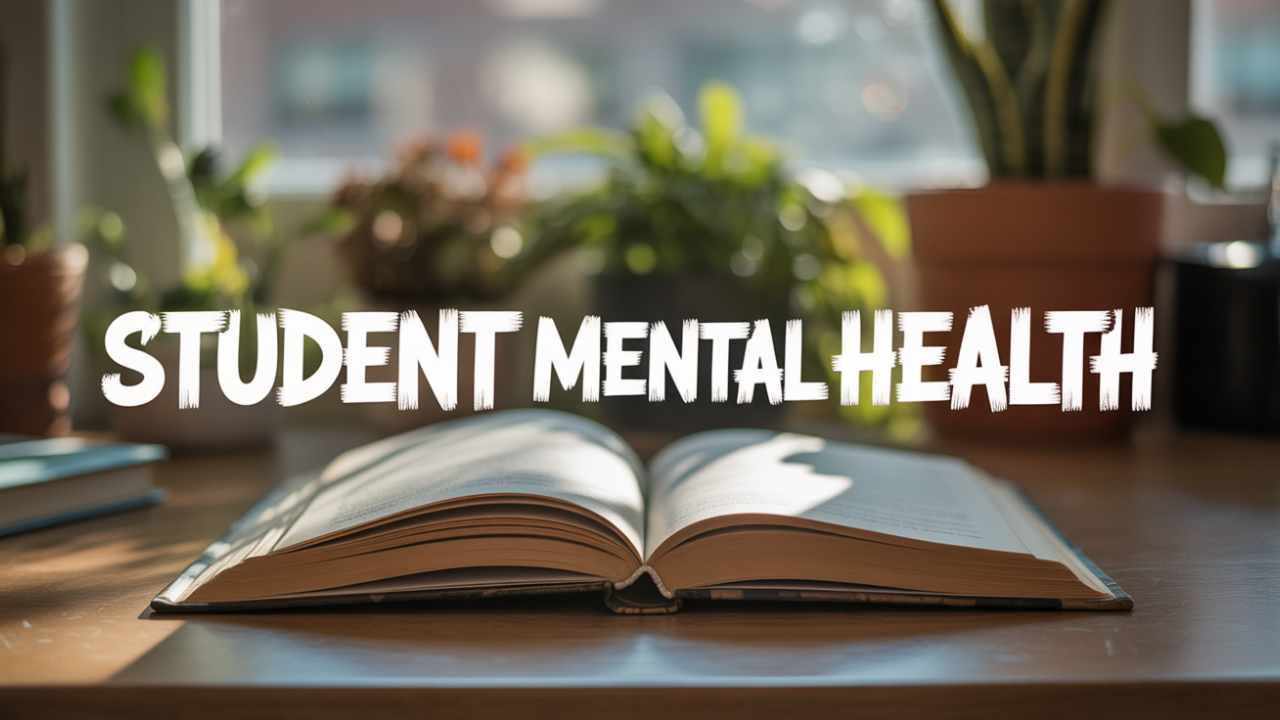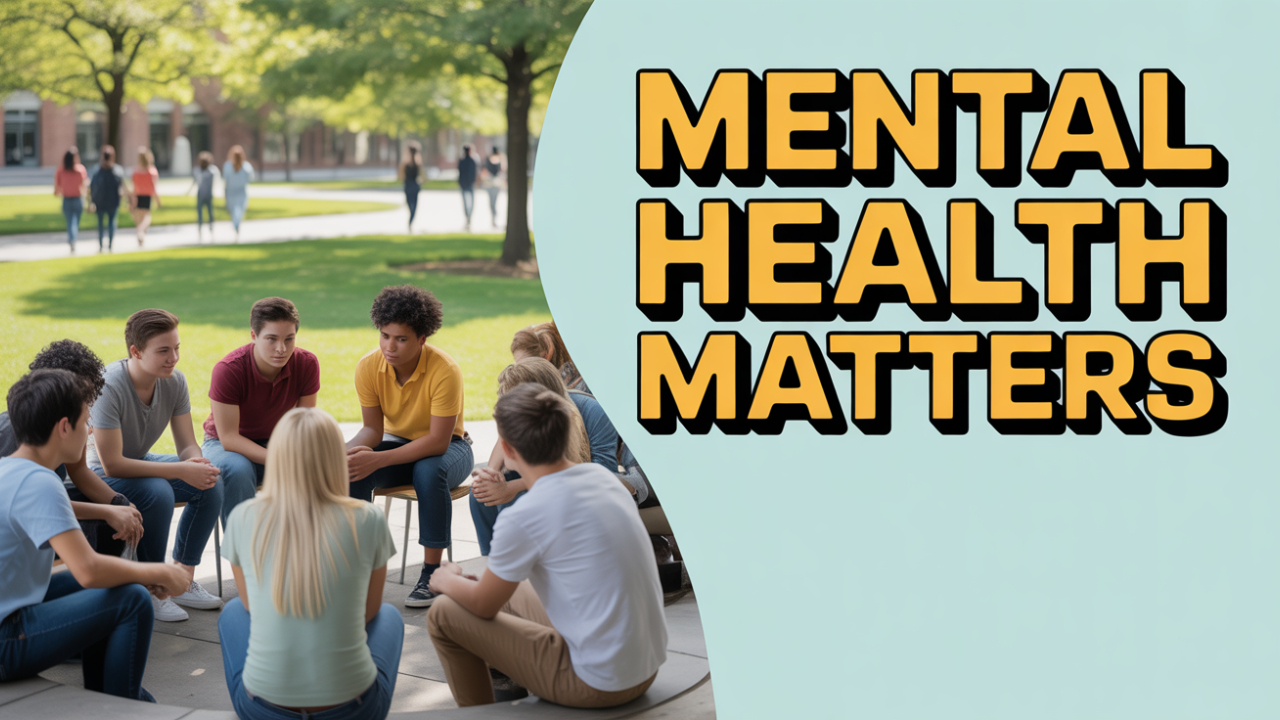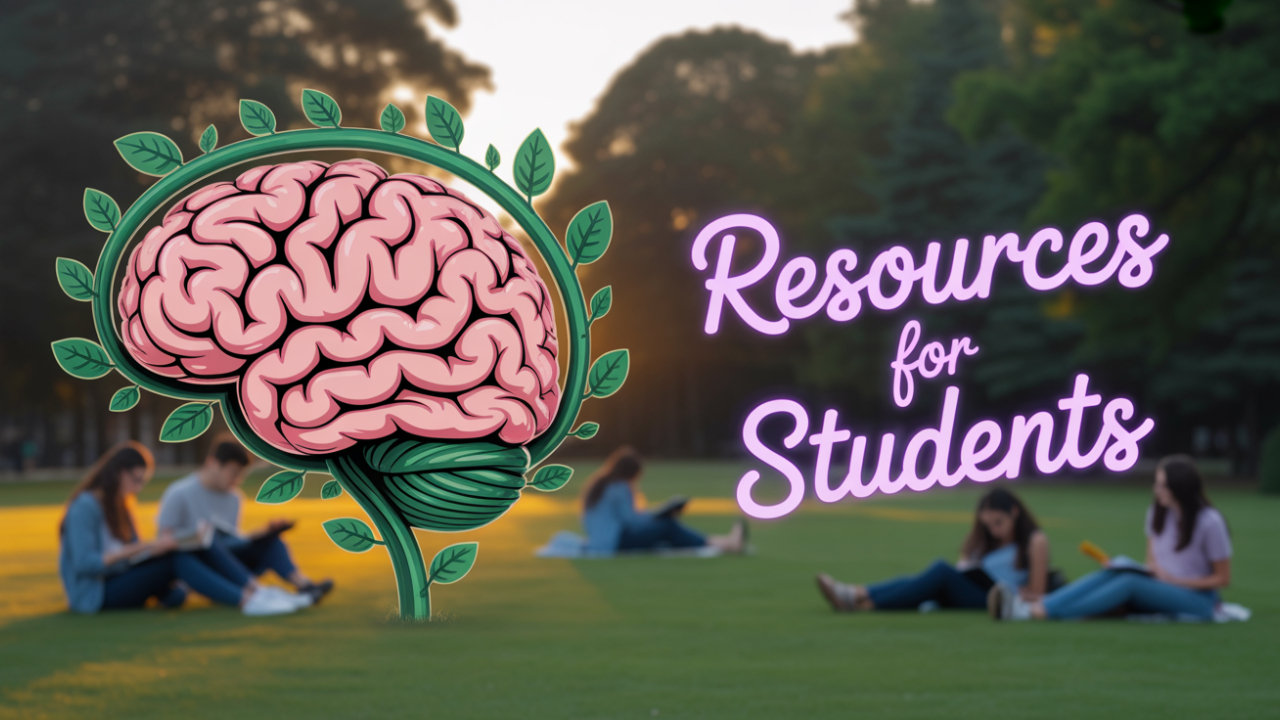Student Mental Health Resources
Mental health challenges among students have reached critical levels, with statistics revealing an alarming trend that demands immediate attention. According to the CDC, 37% of high school students reported persistent feelings of sadness or hopelessness in 2021, while the American College Health Association found that over 40% of college students experience overwhelming anxiety.
These numbers aren’t just statistics—they represent real students struggling to balance academic pressures, social relationships, and personal growth while managing their emotional well-being. Research indicates that approximately 75% of mental health conditions begin by age 24, making the student years a crucial time for early intervention and support.
The good news is that help is available, and seeking support is a sign of strength, not weakness. Students who utilize mental health resources perform better academically and have higher graduation rates. This comprehensive guide will walk you through the various mental health resources available to students, from on-campus services to online platforms, self-care strategies, and professional help options.

Common Mental Health Challenges Students Face
Student life brings unique stressors that can significantly impact mental health. Understanding these challenges is the first step toward finding appropriate support and resources.
Anxiety and Academic Pressure
Academic anxiety affects students across all educational levels. The pressure to maintain high grades, complete assignments on time, and prepare for standardized tests can create overwhelming stress. Social anxiety also plays a significant role, particularly during transitions like starting high school or college, where students must navigate new social environments and form new relationships.
Many students experience performance anxiety during exams or presentations, which can interfere with their ability to demonstrate their knowledge effectively. This creates a cycle where anxiety about performance actually hinders academic success.
Depression and Mood Disorders
Depression among students often manifests as persistent sadness, loss of interest in activities once enjoyed, changes in sleep patterns, and difficulty concentrating on schoolwork. The transition periods—such as moving away from home for college or dealing with increased independence—can trigger depressive episodes.
Seasonal changes, particularly during winter months when students spend more time indoors studying, can contribute to seasonal affective disorder. The isolation that sometimes comes with intensive studying can also exacerbate feelings of loneliness and depression.
Stress and Burnout
Chronic stress from balancing academics, extracurricular activities, part-time jobs, and social responsibilities can lead to burnout. Students may experience physical symptoms like headaches, stomach problems, and fatigue, alongside emotional symptoms such as irritability and feeling overwhelmed.
Burnout often develops gradually, making it difficult for students to recognize until they’re severely impacted. The pressure to maintain a perfect image on social media can add another layer of stress as students compare their real struggles with others’ curated online personas.

On-Campus Mental Health Resources
Most educational institutions recognize the importance of student mental health and offer various on-campus resources designed to provide accessible support.
Counseling Services
School mental health services typically include individual counseling, where students can work one-on-one with licensed mental health professionals. These counselors are specifically trained to understand the unique challenges students face and can provide strategies tailored to academic and social situations.
Many schools offer both short-term counseling for immediate concerns and longer-term therapy for ongoing mental health conditions. Crisis counseling is usually available for students experiencing acute mental health emergencies.
Support Groups and Peer Programs
Student counseling services often facilitate support groups where students with similar experiences can connect and share coping strategies. These groups might focus on specific issues like anxiety management, grief and loss, or adjusting to college life.
Peer support programs train students to provide basic emotional support and resource referrals to their classmates. These programs recognize that sometimes students feel more comfortable talking to peers who understand their experiences firsthand.
Wellness Programs and Workshops
University mental health support and high school mental health programs frequently include wellness workshops covering topics like stress management, healthy sleep habits, mindfulness techniques, and time management skills. These educational programs help students develop preventive mental health strategies.
Many schools also offer wellness fairs, mental health awareness weeks, and stress-relief activities during high-pressure periods like finals week.
Online Mental Health Resources for Students
Digital mental health resources have become increasingly important, especially as they provide 24/7 accessibility and can complement on-campus services.
Mental Health Apps and Platforms
Free mental health resources for students include various mobile applications designed specifically for young people. Apps like Headspace for Students, Calm, and Sanvello offer guided meditation, anxiety tracking, and coping skill exercises tailored to student needs.
Crisis intervention apps provide immediate support during mental health emergencies, with features like crisis chat lines and emergency contact systems. Many of these apps are designed with student schedules in mind, offering quick exercises that can be completed between classes.
Virtual Counseling and Therapy
Online mental health resources for students have expanded to include virtual therapy sessions with licensed professionals. These platforms often provide more flexible scheduling options than traditional in-person therapy, making it easier for busy students to access consistent care.
Some services specialize in college-specific issues, while others focus on adolescent mental health. Virtual intensive outpatient programs, like those offered by specialized providers, can provide comprehensive support for students who need more intensive care than weekly therapy sessions.
Educational Websites and Resources
Comprehensive online resources provide information about mental health conditions, treatment options, and self-help strategies. Websites like the Jed Foundation offer extensive resources specifically designed for teens and young adults, including guidance for both students and their families.
These platforms often include interactive tools for mental health screening, educational videos, and downloadable resources that students can use to better understand and manage their mental health.

Self-Care Strategies for Student Mental Health
Developing personal self-care routines is essential for maintaining good mental health throughout the academic journey.
Daily Wellness Practices
Establishing consistent daily routines can provide stability and reduce anxiety. This includes maintaining regular sleep schedules, even during stressful periods like exam weeks. Adequate sleep is crucial for emotional regulation and academic performance.
Regular physical activity, even just a 10-minute walk between classes, can significantly improve mood and reduce stress hormones. Many students find that incorporating brief mindfulness or breathing exercises into their daily routine helps manage anxiety and improve focus.
Stress Management Techniques
Effective time management can prevent much of the stress that leads to mental health problems. Learning to prioritize tasks, break large projects into manageable steps, and set realistic goals can help students feel more in control of their academic responsibilities.
Relaxation techniques like progressive muscle relaxation, deep breathing exercises, and guided imagery can be practiced anywhere on campus and provide immediate stress relief during overwhelming moments.
Building Social Connections
Maintaining meaningful relationships is crucial for mental health. Students should prioritize spending time with supportive friends and family members, even when academic demands are high. Joining clubs or organizations related to personal interests can provide both social connection and stress relief.
Learning to set healthy boundaries is equally important. This includes knowing when to say no to additional commitments and recognizing when relationships are becoming sources of stress rather than support.
When and How to Seek Professional Help
Recognizing when self-care strategies and peer support aren’t sufficient is an important skill for students to develop.
Recognizing Warning Signs
Students should seek professional help when mental health symptoms begin interfering with daily functioning, academic performance, or relationships. Warning signs include persistent feelings of hopelessness, significant changes in sleep or eating patterns, increased substance use, or thoughts of self-harm.
If friends or family members express concern about changes in behavior or mood, this feedback should be taken seriously as an indication that professional support might be beneficial.
Finding the Right Mental Health Professional
Student wellness resources typically include guidance on finding appropriate mental health care. Students may benefit from different types of professionals depending on their needs—counselors for general support and coping strategies, psychologists for therapy, or psychiatrists for medication management.
Many students benefit from therapists who specialize in adolescent or young adult mental health, as these professionals understand the unique developmental and social challenges of this age group.
Navigating Insurance and Cost Concerns
Understanding insurance coverage for mental health services is important for accessing care. Most student health insurance plans include mental health coverage, and many schools offer counseling services at no additional cost to students.
For students without insurance or with limited coverage, community mental health centers often provide sliding-scale fees based on income. Some online therapy platforms also offer affordable options specifically for students.
Success Stories: Students Finding Hope and Help
Real experiences from students who have successfully navigated mental health challenges can provide hope and practical insights for others facing similar struggles.
Sarah, a college sophomore, found that combining on-campus counseling with a mindfulness app helped her manage severe test anxiety. She learned specific breathing techniques that she could use immediately before exams, and her grades improved significantly once her anxiety was under control.
Marcus, a high school junior, initially resisted seeking help for depression but found that joining a peer support group made him feel less alone. Connecting with other students who understood his experience helped him develop coping strategies and eventually led him to individual therapy.
Elena discovered that her persistent worry and sleep problems were symptoms of an anxiety disorder. Working with a counselor who specialized in adolescent mental health, she learned cognitive-behavioral techniques that helped her challenge anxious thoughts and develop more balanced thinking patterns.
These stories illustrate that recovery is possible and that different combinations of resources work for different students. The key is being open to trying various approaches and not giving up if the first resource attempted isn’t the perfect fit.
Additional Crisis and Support Resources
Several national organizations provide specialized support for students experiencing mental health crises or seeking ongoing support.
The Jed Foundation focuses specifically on protecting emotional health and preventing suicide among teens and young adults. Their website provides comprehensive resources for students, families, and educational institutions, including crisis intervention strategies and prevention programs.
Active Minds operates as a student-led organization dedicated to reducing mental health stigma on college campuses. They provide resources for starting mental health conversations, organizing awareness events, and creating supportive campus communities.
For immediate crisis support, the National Suicide Prevention Lifeline (988) offers 24/7 confidential support for people in distress. The Crisis Text Line provides free crisis support via text message—students can text HOME to 741741 to connect with a trained crisis counselor.
Taking the Next Step Toward Better Mental Health
Mental health challenges are common among students, but they don’t have to define your academic experience or future success. The resources outlined in this guide—from on-campus counseling services to online platforms, self-care strategies, and crisis support—provide multiple pathways to support and recovery.
Remember that seeking help is a sign of strength and self-awareness, not weakness. Just as you would seek medical care for a physical injury, addressing mental health concerns is an important part of overall wellness and academic success.
Start with the resources that feel most accessible to you, whether that’s downloading a mental health app, scheduling an appointment with campus counseling services, or simply talking to a trusted friend or family member about what you’re experiencing.
Your mental health matters, and support is available. Take the first step toward a healthier you by exploring the comprehensive resources available at Adolescent Mental Health, where you can access personalized mental health assessments and connect with expert guidance specifically designed for students navigating mental health challenges.
Frequently Asked Questions
1. What types of mental health resources are available for students?
Students have access to a variety of mental health resources depending on their school or community. These may include on-campus counseling centers, peer support groups, hotlines, online therapy platforms, mental health apps, and self-help workshops. Many schools and universities also provide educational programs on stress management, mindfulness, and emotional resilience.
2. Are mental health resources for students free?
Many schools and universities offer free or low-cost mental health services to enrolled students, such as individual or group counseling sessions, workshops, and crisis support. Community organizations and national hotlines also provide free services, especially for students without access to campus-based care. Always check with your school’s student health or wellness center to learn what’s available at little or no cost.
3. How can I find mental health resources if my school doesn’t offer much support?
If your school lacks robust mental health services, there are still plenty of options. National organizations and online platforms provide free or affordable support, including hotlines, chat services, and virtual therapy. Many community clinics also welcome students. Start by searching for local mental health nonprofits or using national directories like NAMI (National Alliance on Mental Illness) or Mental Health America.
4. When should I reach out for mental health support as a student?
If you’re feeling persistently overwhelmed, anxious, depressed, or unable to cope with daily responsibilities, it’s important to seek help. Signs include trouble sleeping, withdrawing from social activities, falling behind academically, or having thoughts of self-harm. Reaching out early can help you feel better and prevent issues from worsening. There’s no wrong time to ask for support — it shows strength, not weakness.









